#Łukasz Żal
Explore tagged Tumblr posts
Text

Shot of the decade.
#the zone of interest#jonathan glazer#Łukasz Żal#movie shots#movie stills#movies#cinematography#director of photography
52 notes
·
View notes
Text










The Zone of Interest (2023)
26 notes
·
View notes
Text

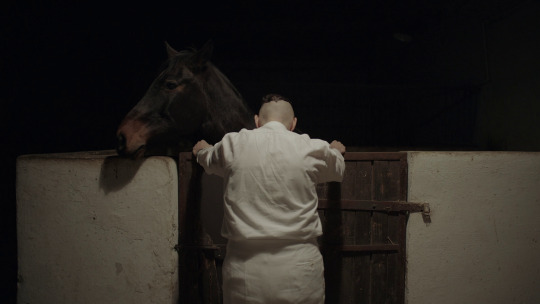
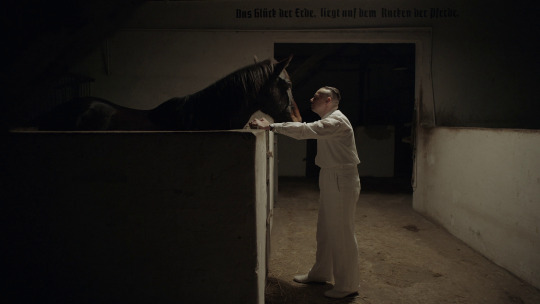


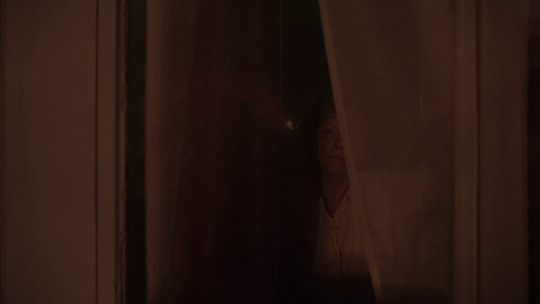
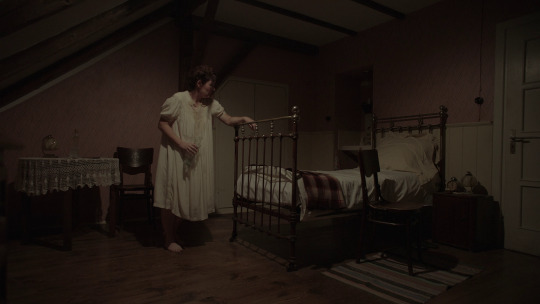
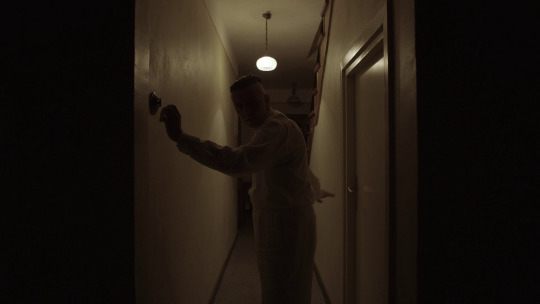
The Zone of Interest Jonathan Glazer 2023
#martin amis#literature#film#cinema#masterpiece#mica levi#great sound design#great directors#great cinematography#Sandra Hüller#Christian Friedel#Łukasz Żal#Johnnie Burn#Jonathan Glazer#The Zone of Interest
30 notes
·
View notes
Text



Cold War (2018) dir. Paweł Pawlikowski
Cinematography: Łukasz Żal
#cold war 2018#film screenshots#cold war#2018#film#movie#polish cinema#Paweł Pawlikowski#Tomasz Kot#Joanna Kulig#Łukasz Żal
49 notes
·
View notes
Text




The zone of interest (2023).
— dir. Jonathan Glazer | dop: Łukasz Żal.
2 notes
·
View notes
Text
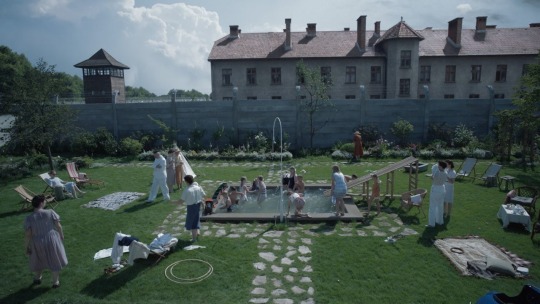
The Zone of Interest (2023, United Kingdom/Poland)
Over the last decade, English director Jonathan Glazer questioned whether it was appropriate for him to make a Holocaust movie from a Nazi perspective. Glazer, who comes from a Jewish family in north London, said that his family never spoke about the Holocaust at home, but it nevertheless loomed over their lives. His late father, when learning about Glazer’s decision to adapt Martin Amis’ novel The Zone of Interest, expressed disapproval. Yet Glazer forged ahead, his vision now complete.
I am no expert in the area of Holocaust cinema (of which there is a growing and always-controversial history) and do not profess to be a specialist of the Holocaust or Nazism. Nevertheless, I do believe it is possible to make a moral Holocaust narrative film from a Nazi point of view. Does Glazer succeed in doing so? That is a question that still perplexes me, and I am not sure if I can provide any satisfying answer. Given Glazer’s moral agonizing while making and within the visuals of this film, I am not sure if he knows either. So while I will still attempt to engage with the morality of The Zone of Interest (which, by many accounts, resembles little of Amis’ novel), this write-up’s premise will concentrate on two of the film’s goals as stated by Glazer himself.
The first is to immerse the viewer into the psychologies of Auschwitz concentration camp commandant Rudolf Höss (Christian Friedel; Rudolf Höss was the longest-serving commandant of the camp) and his wife, Hedwig (Sandra Hüller), and understand how their mindset is similar to how the viewer compartmentalizes modern-day atrocities. In these respects, Glazer succeeds. Just. Secondly, Glazer, “wanted to remove the artifice of filmmaking” in order to make as natural a film as he could, so that the audience can pay stricter attention to what is occurring on-screen. This is where The Zone of Interest falters.
It is 1943 in Nazi-occupied Poland. The Höss family lives in an estate just outside the walls of Auschwitz. Some days, the five children and their parents spend a lazy outing at a nearby riverbend, swimming and enjoying nature. At home, the Höss parents shield their children from the ugliness of the Second World War and the mass human suffering occurring just beyond the walls of the camp next door. Hedwig’s perfectly manicured garden, replete with flowers for decoration and herbs for cooking, is her escape – a world without wants. A small pool in the spacious backyard provides the children plenty of swim time. On a clear day, we can see the smoke stacks of an approaching train in the distance, soon to drop off its passengers to a place worse than hell itself. At night, Auschwitz’s crematorium spews an unearthly red – piercing the sky and sneaking past the drawn curtains of the Höss estate. And at all hours, we hear gunfire and screaming emanating from inside the camp.
Never do cinematographer Łukasz Żal’s (2014’s Ida, 2018’s Cold War) cameras show any glimpses of life within Auschwitz’s walls. None of the human suffering wrought by the Nazis appears directly in the film. We have a fleeting glimpse, obscured by foliage and for purposes unclear, of chained prisoners walking outside the camp’s walls under military escort. In another moment in the Höss household, a female prisoner comes to Rudolf Höss’ office for what is presumed to be forced sex; we never see or hear from her again, as we witness him wash his genitals (filmed from his backside) after their encounter. The particulars of what the Nazis did to the inmates of Auschwitz and the other concentration camps is for another film, Glazer says, a self-admission that he cannot hope to capture that suffering in narrative or documentary form. The decision not to show any Holocaust cinema has precedent, as seen in Claude Lanzmann’s documentary Shoah (1985, France) – largely seen as the 566-minute magnum opus of Holocaust cinema.
Instead, Glazer is more interested in something that has become a cliché in all writings on The Zone of Interest – what philosopher Hannah Arendt deemed the “banality of evil” – in order to allow modern audiences understand their own complicity in contemporary atrocities. Writing on the 1960 trial of Adolf Eichmann (one of the crucial facilitators of the Holocaust) in Israel, Arendt’s definition of the “banality of evil” stemmed from her subject’s lack of ideological fanaticism towards Jews, coupled with his inclination towards professional progression if it meant not having to think critically about any moral issues tied to said progression.
Arendt’s definition of the “banality of evil” has been controversial ever since the publication of 1963’s Eichmann in Jerusalem – a common accusation that Arendt was trying to diminish the severity of Eichmann’s guilt (she was not). Controversies aside, The Zone of Interest, on a cinematic surface, adopts that same “banality of evil”. The Höss parents never engage in explicit anti-Semitic language or refer to Auschwitz’s inmates as subhuman. Though Rudolf washes his genitals after the presumed sexual encounter with the prisoner and Hedwig seems uneasy when going through the luxury clothes of incarcerated/deceased camp inmates, life otherwise appears normal. In a scene where Rudolf is meeting with a private contractor on a more efficient crematorium system, both Rudolf and the contractor speak not with genocidal terms, nor carefully-worded innuendos. Instead, their meeting covers only the mechanics of the proposed system, in numbers and cold engineering efficiency. Without the historical context of The Zone of Interest, that discussion might eerily fit in a plain industrial meeting (not so much a later meeting with other concentration camp commandants as they discuss an imminent influx of Hungarian Jews to their camps).
To what lengths can a person accept the rationalizations of a leadership bent on the mass slaughter of innocent people on an industrial scale? Similarly, how does one reckon with their ostensibly peaceful existence when that peace is made possible only by revolting violence just a stone’s throw away? For these questions, we never receive any answers from anybody in the Höss family or their associates depicted within this film or from history itself. They live life without examining themselves, with no hints of regrets.
With the Höss parents not providing potential answers, it then turns to the viewer to ask themselves those same questions. I do not wish to come off as a youth-basher, but younger (American) viewers will need additional context for this film, if generational rates of Holocaust denialism are to be believed. For the rest of us, can we imagine ourselves turning a blind eye or going about our daily lives knowing that our happiness rests on the oppression, subjugation, or mass murder of a people? What do you share, personally, with Rudolf and Hedwig Höss? Does The Zone of Interest, in reaction to popular Hollywood Holocaust dramas of the 1990s and 2000s (see: 1993’s Schindler’s List, 2002’s The Pianist), paint the Holocaust as a non-unique event? This is a provocative work from a filmmaker who, in the absence of a grander narrative or intentional moralizing in his work, turns all of the introspection onto the audience. Beyond that, the film in and of itself is ideologically hollow.
The other half of Jonathan Glazer’s aims for The Zone of Interest was to create a film with minimal cinematic artifice. Łukasz Żal’s unobtrusive compositions and mostly-still camera certainly help in this regard, but too often some of the interior shots of the Höss household appear as if they are coming from the corners of the room, like anachronistic security camera footage. Most anachronistic of all are the black-and-white scenes in night vision for exterior shots of a young girl leaving apples around workplaces at Auschwitz. How jarring that the most humanistic moments of The Zone of Interest appear in the most visually artificial scenes of the film. The use of a night vision camera broke whatever hold The Zone of Interest had on me, cinematically. It comes off as a needless artistic flourish, as if to impress a captive audience.
Worst of all is Mica Levi’s horrific and unlistenable score. The score, for the ten to fifteen minutes it plays (hardly a score given a 106-minute runtime), is an atonal howler that shares a close relationship with the sound mix* – to the point where numerous other film critics have conflated the two. If Glazer is attempting to dissociate his film from the artifices of cinema, I cannot think of a better encapsulation of how quickly he fails than with this collaboration with Levi. In a time when many directors are telling their composers that they do not want noticeable music (in most instances, a fundamental misunderstanding about the dramatic and emotional capabilities of film music), Levi’s score is inescapable. Its heavy sonic distortions; complete dismissal of any familiar intonation (one of Levi’s primary influences is experimental composer Harry Partch, whose music obliterates the familiar seven pitches of a diatonic scale in favor of a 43-tone scale with uneven intervals); and bizarre use of electronically-manipulated choral screaming (a kitschy musical decision that borders on the insensitive and tasteless) might perfectly set the tone for some viewers. For myself – especially the scenes shot in night vision and the moment the screen fades to red – it was a discordant distraction that, again, only served to take me out of the movie.
The best film scores have several disparate but heavily interdependent and coequal qualities: they empower, but not overtake, the comedic/dramatic and emotional power of a movie and its narrative (if a narrative is present); they should typify exemplary musicianship (in composition and performance); and the viewer should be able to hear the music. Levi and Glazer share the failure on the the first two aspects. It is only on this third aspect that Mica Levi’s work truly contributes to The Zone of Interest – a film that would be better treated without a score.
The Zone of Interest raises pertinent questions of culpability and human responsibility in reckoning with humanity at its worst. There are moments in here – mostly scenes in which the reality of the Holocaust leaves its terrible shadow over the Höss family, moments where you expect them to possibly recoil from what they are doing – that stick with me, and haunt my ruminations over how I rationalize living in a society built on violence. Crucially, The Zone of Interest is not unique in inspiring such thoughts in a person, as some are suggesting. Martin Scorsese’s Killers of the Flower Moon (2023) and Steve McQueen’s 12 Years a Slave (2013) also provoked a similar introspection in me – these films depict two episodes within the context of the two original sins of my home nation. And though neither of those films centralize the goodness of others (far from it), if one looks close enough, one can find the banality of good (amid more naturalistic filmmaking).
In the end, Jonathan Glazer’s treatment of The Zone of Interest buckles underneath the weight of his promise to forego the conventions of art cinema. His objectives conflict with the artistic trappings – in its cinematography, music, sound mix, and an intellectual remove from human nature that I am unsure is appropriate for this subject matter – found within. It leaves his promise utterly broken.
My rating: 5/10
^ Based on my personal imdb rating. My interpretation of that ratings system can be found in the “Ratings system” page on my blog. Half-points are always rounded down.
* You hear nearly everything in this film. Sometimes, a little too perfectly. There are several moments in The Zone of Interest in which you hear the screams of Auschwitz’s prisoners or gunshots and they sound as if they are far too close to the Höss household than they should be. It reminded me, to paraphrase Larry Mantle on the December 15, 2023 episode of FilmWeek, of stage plays using off-stage tapes to play sounds for activities ostensibly not occurring "on stage". While that might work in a stage play, that is not the sort of comparison I wish to be making when writing on a film.
For more of my reviews tagged ��My Movie Odyssey”, check out the tag of the same name on my blog.
#The Zone of Interest#Jonathan Glazer#Christian Friedel#Sandra Hüller#Ralph Herforth#Daniel Holzberg#Sascha Maaz#Martin Amis#Łukasz Żal#Paul Watts#Mica Levi#Tarn Willers#Johnnie Burn#A24#31 Days of Oscar#My Movie Odyssey
2 notes
·
View notes
Text

0 notes
Text


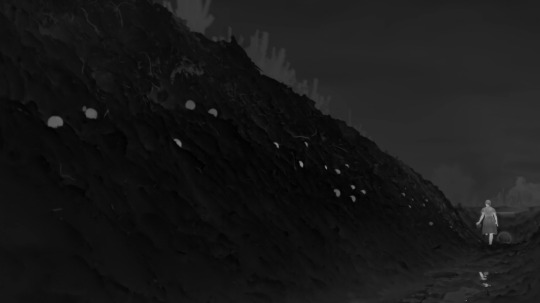
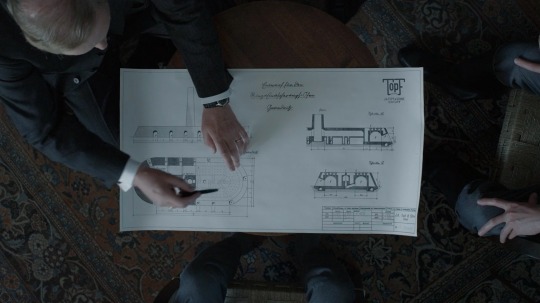


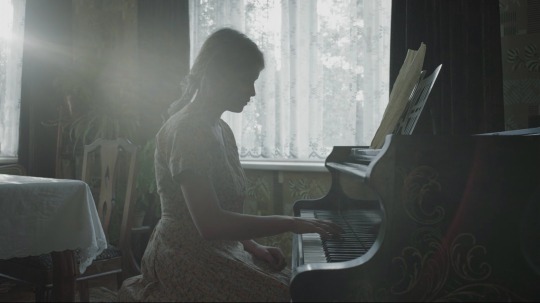
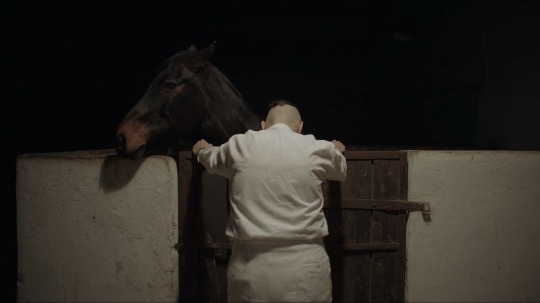


"The life we live is very much worth the sacrifice."
The Zone of Interest (2023) dir. Jonathan Glazer
#the zone of interest#jonathan glazer#christian friedel#sandra hüller#dp: łukasz żal#johnnie burn#mica levi#films#film stills#screencaps#cinema#cinematography#cannes 2023
277 notes
·
View notes
Text

torpeda ty to lubisz międzyrasowo
#gift dla najwierniejszego komentującego na deviantarcie#szczerze to nawet przyjemnie się rysowało XD#idk slodcy są nawet#jj torpeda#cynameru posting#digital#doodle#fanart#sketch#kapitan bomba#kurvinox#michał łukasz głuś#torpeda x głuś#funfact to drugi mój obrazek który został zrepostowany bez pytania XD#ale aż żal się denerwować jak to tylko na walaszkawce na fb#jak się kochają to chuj z nimi#alien#interspecies relationships#interspecies romance#old men yaoi#kurvinoxy są miękkie w dotyku#you can't change my mind#kiedyś będzie coś heteronormatywnego z kapitana bomby obiecuję
42 notes
·
View notes
Text
Everything I Watched While I Was Recovering From the Plague
I have a fantasy that watching a bunch of movies of wildly varying quality and content in close proximity can really bend your wires out of shape, like being exposed to too much radiation. I like to tell people that I had to get all those eye surgeries because of all the deranged stuff I subject my eyeballs to. My criteria for this marathon were "movies I want to watch but it's never 'the right time'" and "movies my sick husband in the next room is not interested in".

THE IRON CLAW: Pretty much the big, dumb, lummoxy movie that you might expect. The script is surprisingly weak--the girlfriend declares that everything is a matter of fate minutes before saying "I believe we make our own luck"??--but the family curse part is sort of compelling in spite of it all. I admit I was partially in it for the freak show of muscle mania; for various cultural reasons the way bodies were presented (and the kinds of bodies people aspired to have) in the '80s was so different than it is now, the exhibition of flesh had a very different kind of character that's hard to describe but this movie with its bulbous wrestler bodies filling the screen gave me flashbacks. Zac Efron should keep his He-Man haircut.
DARK HARVEST: I've been struggling to describe this certain type of movie that's very form over function, with a pretty specific form: there's like a really forced "stylized" nostalgia thing with a lot of humorless "weirdness" attached in movies like FINAL GIRL and KNIVES AND SKIN, and to some degree THE REFLECTING SKIN although that's a more sophisticated example (that I still don't enjoy). Anyway DARK HARVEST adds a Pumpkinhead guy (not pictured below) to the mix, and he looks pretty good at least.

THANKSGIVING: Well it's the best movie Eli Roth has made in a long time! It's OK. I like that the inciting incident is a Black Friday stampede, but it's too bad he didn't have the means to make it look more convincing; it feels like about a 150 people running around yelling and there's conspicuous amount of breathing room for the victims getting "crushed".
ZONE OF INTEREST: A tour of the ogre's castle, creepy and effective. Łukasz Żal's spy cam setup cleverly establishes a sense of being trapped in forbidden chambers.
GODLAND: Danish priest makes the perilous journey to Iceland, is a complete asshole to everyone he meets. Interesting, but more beautiful than interesting.
LINGERING: Goofy K horror in which a handful of different neurotic women are relentlessly mean to a small child. I often wonder about this trope of like, someone who is categorically unsuited to parenthood gets saddled with an orphan, and they REALLY don't want to adopt the orphan, but eventually they turn against their own personality and rational estimation of means because the orphan is so cute and/or sad. The implication seems to be that every one of us can and should be parents, and maybe this is even related to the (usually comedic) trope of the solitary curmudgeon who just wants to be left alone, until they undergo some kind of forced exposure therapy at the hands of their nosy neighbors who insist that no human being could actually enjoy their own company. This is an ongoing concern for me.

UNREST: Anarchist watch factory workers in love. Second movie in the list that uses early photography as a motif (also GODLAND). Pretty interesting formally, and I like all the stuff about the development and spread of standardized hourly time.
WITCHHAMMER: 1970 Czech allegory for Communist "show trials". Man, whether you're making an exploitation movie or a political statement, witch hunt movies are always tough stuff, huh?
HONEYCOMB: A woman unravels mentally when her childhood furniture arrives at her home, and she and her husband play out a series of weird infantile psychodramas as an escape from the pressures of their bourgeois existence. More interesting than enjoyable, and I'm not always sure how interesting it really is. There's a certain brand of European '60s filmmaking that involves a lot of improvised shrieking and laughing and crying and rolling around on the floor that makes me question whether it's really as hollow as I think it is, or if I'm just not a sophisticated enough viewer to understand the power of it, or if its original power was really dependent on its context in the development of cinema. Maybe the answer is a little of everything.
THE SWEET HOURS: A Spanish writer's latest play parses the Freudian mysteries of his childhood, and he fully immerses himself in the rehearsals to seek the truth by reliving his memories. It's actually not that deep but maintains a great air of importance anyway.
NIGHT GAMES: A young aristocrat brings his bride to his childhood manse where their surroundings trigger immersive memories of his debauched youth, in which--wait a minute, am I watching the same fucking movie for the third time? Not really but that was weird. Criterion notes that this is supposedly John Waters' favorite movie, which makes a lot of sense when you've heard him say that he used to force Divine to drop acid with him and go see Bergman movies, which Divine HATED. What's really funny to me is that if you basically do not want to drop acid and watch a Bergman movie then you'd think nothing could make you do it more than once! The idea of John Waters tricking Divine into doing this repeatedly is fucking hilarious.

SAM NOW: Disturbing documentary made by some young dudes trying to find out why their mother suddenly abandoned them when they were kids. It's a decent enough movie but I was extremely unsettled by the blithe naivete of the young brothers set against the increasingly obvious fact that there's something pretty bad going on with the mom. Get ready for a lot of discomfort and unresolved questions if you watch this.
LIZZIE: Why is it that nobody has made a good Lizzie Borden movie? It's one of those overly familiar tales that's just sitting there in plain view still waiting for a solid adaptation, kind of like The Legend of Sleepy Hollow, but that at least has the great Disney cartoon in among all the so-so film attempts. You really want this to be good with Kirsten Stewart and Chloe Sevigny AND Denis O'Hare who I love to death, but it's just not that compelling. Actually it doesn't even dig into the most interesting details of the story in my opinion, I guess we needed to save time for extra lesbian makeouts. Also I hate to say it but Chloe Sevigny is really miscast; I love her but her whole thing is being really easy-going and natural, and that doesn't really work for this character (or she's not getting the direction that worked on AHS). Oh well.
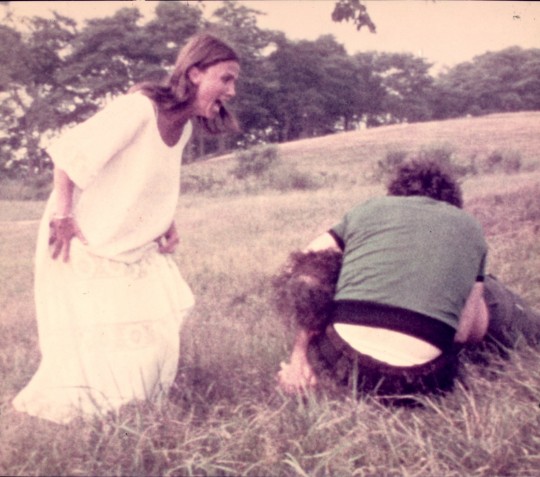
MAIDSTONE: See my notes at the end of HONEYCOMB. I found this almost totally unwatchable. I've never read any Norman Mailer. Is Norman Mailer still cool, or did he just seem cool to some people at the time? Was Norman Mailer sort of like an adolescent rebellion phase that American literature had to go through in order to get to wherever it is now? A cursory review of his legacy seems to indicate this. Or maybe it's just really hard for me to sympathize with someone who goes way out of his way to piss off women, and then his defense against the inevitable backlash is "SEE? Feminism is fascist bullshit because look how I'm being treated!" I still see men do this on the smaller scale of their personal relationships--you know the drill, drive some poor woman insane, and then when she acts insane, invalidate everything she says by calling her insane--and they don't even need the excuse of clumsy satire to keep doing it, so forgive me if I don't find this approach very radical. And that's all setting aside Mailer's fetishization of the American Negro for whom it is not my place to speak, but you can imagine what that consists of if you don't already know. In any case I did not enjoy this movie, but I was on the edge of my seat the entire time waiting for the infamous Rip Torn hammer attack. I developed this whole fantasy that Rip Torn must reach a point where he just can't take it anymore and he tries to kill Norman Mailer. I mean *I* sure wanted to kill Norman Mailer, somebody has to do it, right? There are several moments in the film where it seems like someone has finally snapped and the cathartic murder might take place. What actually happens is that Rip Torn wanders up to Norman Mailer with a claw hammer, totally wild-eyed, and declares that he has finally understood that this great work of art can only be resolved with the death of the character Mailer plays. He really seems to believe what he's saying, and the sequence is extremely disturbing. In a way it's even disappointing, there were perfectly good, sober reasons to kill Norman Mailer without putting an unstable person in a chaotic and violent situation where he might naturally flip the fuck out! If MAIDSTONE has anything to tell us about the myth of the cowboy auteur, it might be that somebody like Norman Mailer shouldn't have free reign to abuse large groups of people even in the name of social critique or whatever, because one of them might turn out to be fucking crazy.
WANDA: I love movies that are made in Pittsburgh, I find them all totally fascinating. Or even just Pittsburgh-adjacent, like contrary to everybody else my favorite part of THE DEER HUNTER is the very beginning with the wedding, it's totally captivating to me. Anyway this is an odd, grimy little drama written and directed by Barbara Loden in which she plays the most incompetent woman in the world. It's a good time for a bad time, and if you're watching closely you'll see a poster for THE BRAINIAC in one of the scenes!
KISS DADDY GOODBYE: Obscure psychic kids movies starring Marilyn Burns and Fabian. Marilyn Burns is the nice teacher and Fabian is the cop who try to solve the mystery of the psychic kids, so they inevitably have sex because we have time for that I guess, but man Fabian's like roadside bachelor pad is SO SCARY. It has to be somebody's real hoarder house and it looks like it should be condemned, I felt nervous for Marilyn Burns! Marilyn Burns do NO eat or drink anything that comes out of that kitchen! Have you had your tetanus shot Marilyn Burns? Please run screaming, this is not a normal bachelor pad mess and it is not a good place for you to be naked!
The End.
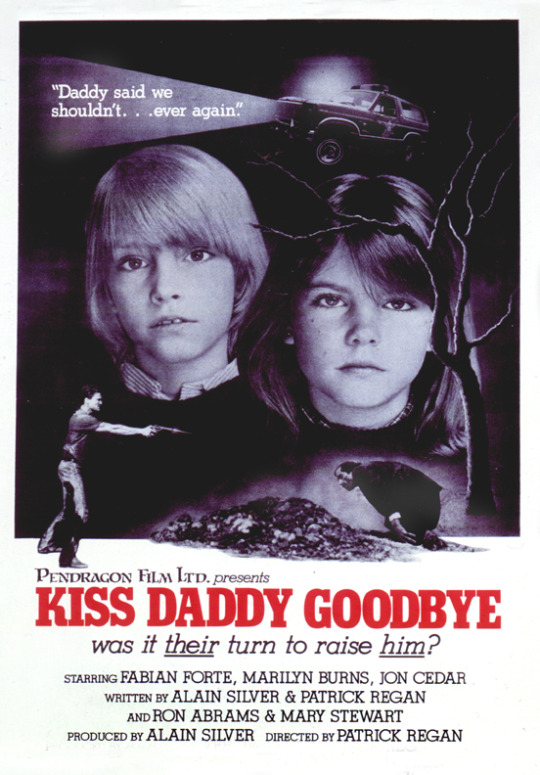
18 notes
·
View notes
Text
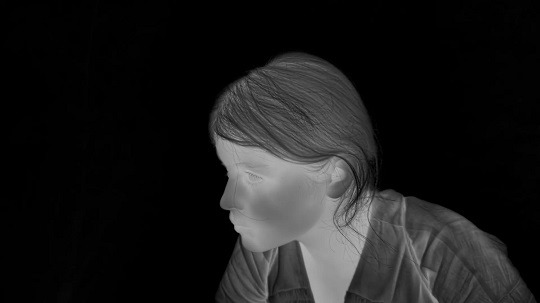
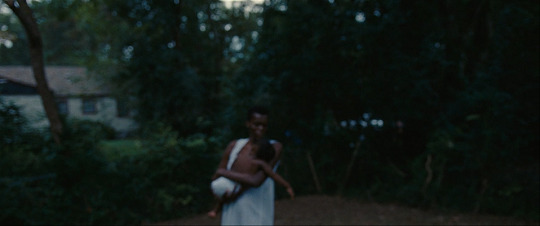
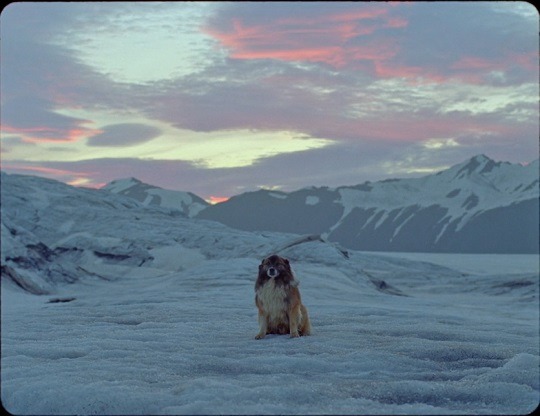
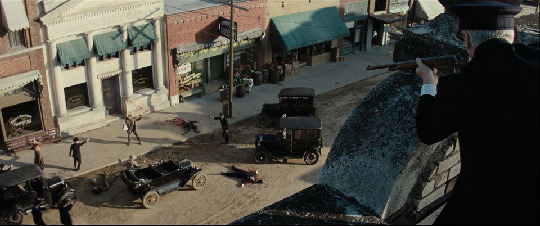
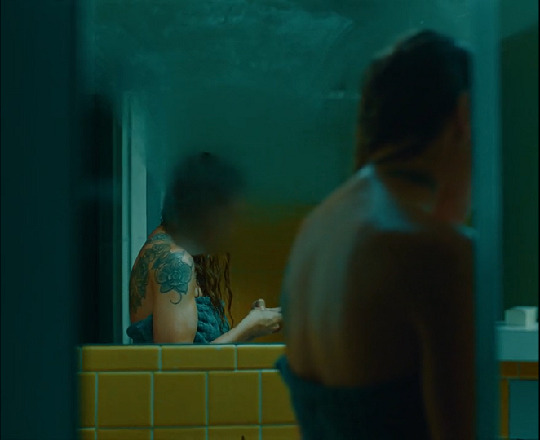
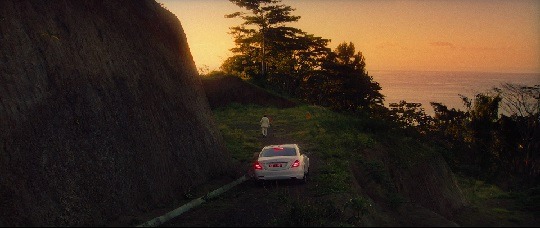
Best Cinematography 2023
Winner
The Zone of Interest - Łukasz Żal
Nominees
All Dirt Roads Taste of Salt - Jomo Fray Godland - Maria von Hausswolff Killers of the Flower Moon - Rodrigo Prieto Monica - Katelin Arizmendi Pacifiction - Artur Tort
#awards 2023#the zone of interest#all dirt roads taste of salt#godland#killers of the flower moon#monica#pacifiction
13 notes
·
View notes
Text






2023 Golden Chinchillas
Best Cinematography
Asteroid City (Robert Yeoman)
La Chimera (Hélène Louvart)
Killers of the Flower Moon (Rodrigo Prieto)
Poor Things (Robbie Ryan)
Pacifiction (Artur Tort)
The Zone of Interest (Łukasz Żal)
Honorable Mentions: El Conde (Ed Lachman), Blue Jean (Victor Seguin), May December (Christian Blauvelt), The Killer (Erik Messerschmidt), About Dry Grasses (Kursat Uresin/Cevahir Sahin)
#annoying how hard it is to get chimera shots that do it justice#best of 2023#la chimera#helene louvart#asteroid city#killers of the flower moon#poor things#pacifiction#the zone of interest
10 notes
·
View notes
Text










The Zone of Interest (2023)
#film#movie#The Zone of Interest#Jonathan Glazer#Łukasz Żal#Rudolf Höß#Rudolf Höss#Rudolf Hoess#Christian Friedel#Sandra Hüller#Martin Amis
14 notes
·
View notes
Text


















The Zone of Interest Jonathan Glazer 2023
Alexandria, the young Polish girl leaving apples for the starving prisoners, was 90 years old when she met Glazer and died shortly after. The bike the film uses and the dress the actress wears both belonged to her.
#martin amis#literature#film#cinema#masterpiece#mica levi#great sound design#great directors#great cinematography#Sandra Hüller#Christian Friedel#Łukasz Żal#Johnnie Burn#Jonathan Glazer#The Zone of Interest
16 notes
·
View notes
Text



Cold War (2018) dir. Paweł Pawlikowski
Cinematography: Łukasz Żal
25 notes
·
View notes
Text


The zone of interest (2024).

— dir. Jonathan Glazer | dop: Łukasz Żal.
0 notes